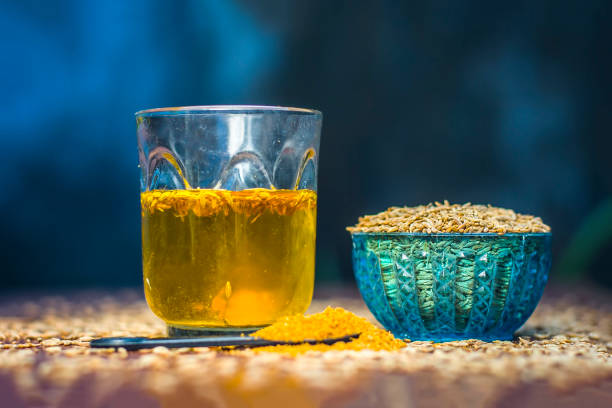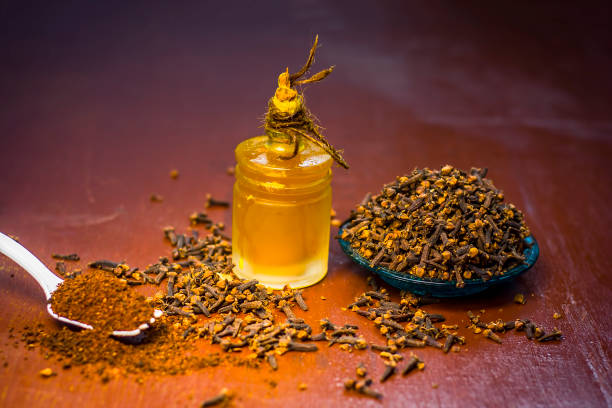Men’s Health, Reproductive Health
How Clove Water Can Supercharge Male Fertility
If you’re hoping to boost male fertility, you might have come across several natural therapies and vitamins. One option that is gaining popularity is clove water. But is clove water beneficial for male fertility? In this article, we will look at the potential benefits of using clove water to improve male reproductive health.
What is Clove Water?
Clove water is just water mixed with cloves. Cloves are dried flower buds from the Syzygium aromaticum tree, which is native to Indonesia. They are a popular spice in cooking and have been used in traditional medicine for generations due to their multiple health benefits.
Nutritional Benefits of Cloves
Clove is well-known for its high nutritional value, which includes vitamins, minerals, and antioxidants. These chemicals have an important role in improving overall health and wellness. Cloves are rich in vitamin C, vitamin K, vitamin E, calcium, and manganese. They also include fiber, which facilitates digestion and promotes a healthy weight.

Clove Water and Male Fertility
While there is limited scientific evidence relating clove water to male fertility, anecdotal reports and traditional medicine practices claim it has a good effect. Cloves are thought to help men’s fertility due to their antioxidant and anti-inflammatory characteristics.
Boosting Sperm Count
Sperm count is the number of sperm cells found in a sperm sample. Low sperm count can lead to infertility. Some research suggests that cloves’ antioxidants may help improve sperm count by lowering oxidative stress and protecting sperm cells from harm.
Enhancing Sperm Motility
Sperm motility is the capacity of sperm cells to move effectively. It is an important element in male fertility because it controls whether sperm can reach and fertilize an egg. Clove water is thought to improve sperm motility by lowering inflammation and increasing blood supply to the reproductive organs.
Supporting Overall Reproductive Health
Clove water is supposed to benefit men’s overall reproductive health. Cloves’ anti-inflammatory characteristics may aid to reduce inflammation in the reproductive system, resulting in increased sperm quantity and quality. Furthermore, the antioxidants present in cloves may protect sperm cells from oxidative damage, which can impair fertility.

Research and Studies on the Effects of Clove Water on Male Fertility
While there have been few scientific studies on the effects of clove water on male fertility, some have looked into the possible advantages of cloves and their active constituents. One study published in the Journal of Medicinal Food indicated that clove essential oil had antioxidant and anti-inflammatory activities. These qualities may help improve male reproductive health, although further research is needed to confirm these findings.
Another study published in the Journal of Ethnopharmacology looked into the effects of clove extract on testosterone production in male rats. Testosterone is a hormone necessary for male reproductive health. The researchers discovered that the clove extract greatly raised testosterone levels in rats. While this discovery appears intriguing, more research is needed to see if similar results occur in humans.
How to Make Clove Water at Home
Making clove water at home is straightforward. Here’s a step-by-step instructions:
- Start by boiling water in a pot.
- Add whole cloves to the boiling water. Use approximately 1 teaspoon of cloves for every 8 ounces of water.
- Let the water simmer for about 5-10 minutes to allow the cloves to infuse.
- Remove the pot from heat and let the clove water cool.
- Once the clove water has cooled, strain out the cloves using a fine-mesh strainer or cheesecloth.
- Transfer the clove water to a clean container and refrigerate it until ready to use.
Remember to consult with a healthcare professional or fertility specialist before incorporating clove water into your routine, especially if you have any underlying health conditions or are taking medications.

Other Natural Remedies for Male Fertility
While clove water may have potential benefits for male fertility, it’s important to note that it should not be considered a standalone solution for fertility issues. There are several other natural remedies that may help improve male reproductive health. These include:
- Eating a nutritious diet rich in fruits, vegetables, whole grains, and lean proteins.
- Maintaining a healthy weight through regular exercise and physical activity.
- Managing stress levels through relaxation techniques such as meditation or yoga.
- Avoiding excessive alcohol consumption and smoking.
- Taking supplements such as zinc, vitamin C, and vitamin E, which have been associated with improved male fertility.
Precautions and Potential Side Effects of Consuming Clove Water
While cloves are generally regarded safe to consume, clove water should be used with caution. Some people may be allergic or sensitive to cloves, resulting in skin rashes, irritation, or difficulty breathing. It is recommended that you undergo a patch test before taking clove water to rule out any allergies.
Furthermore, ingesting an excessive amount of cloves or clove water may cause digestive problems such as stomach pain or diarrhea. It is preferable to begin with minimal doses and gradually increase them if well tolerated.
Consultation with a Healthcare Professional
Before changing your food or lifestyle, you should contact with a healthcare expert or fertility specialist. They can offer individualized advice based on your specific health needs and help you decide whether clove water or other natural therapies are right for you.
Conclusion
In my understanding, while clove water holds promise for potentially benefiting male fertility, there is a need for more research to comprehensively gauge its effectiveness. The antioxidants and anti-inflammatory properties found in cloves suggest a potential contribution to improved sperm count, enhanced sperm motility, and overall reproductive health in men. Remember, it’s crucial to emphasize that clove water should not be seen as a standalone solution for fertility issues. Its usage should be coupled with a healthy lifestyle encompassing a balanced diet, regular exercise, stress management, and consultation with healthcare professionals.
Trusted Health, Wellness, and Medical advice for your well-being


